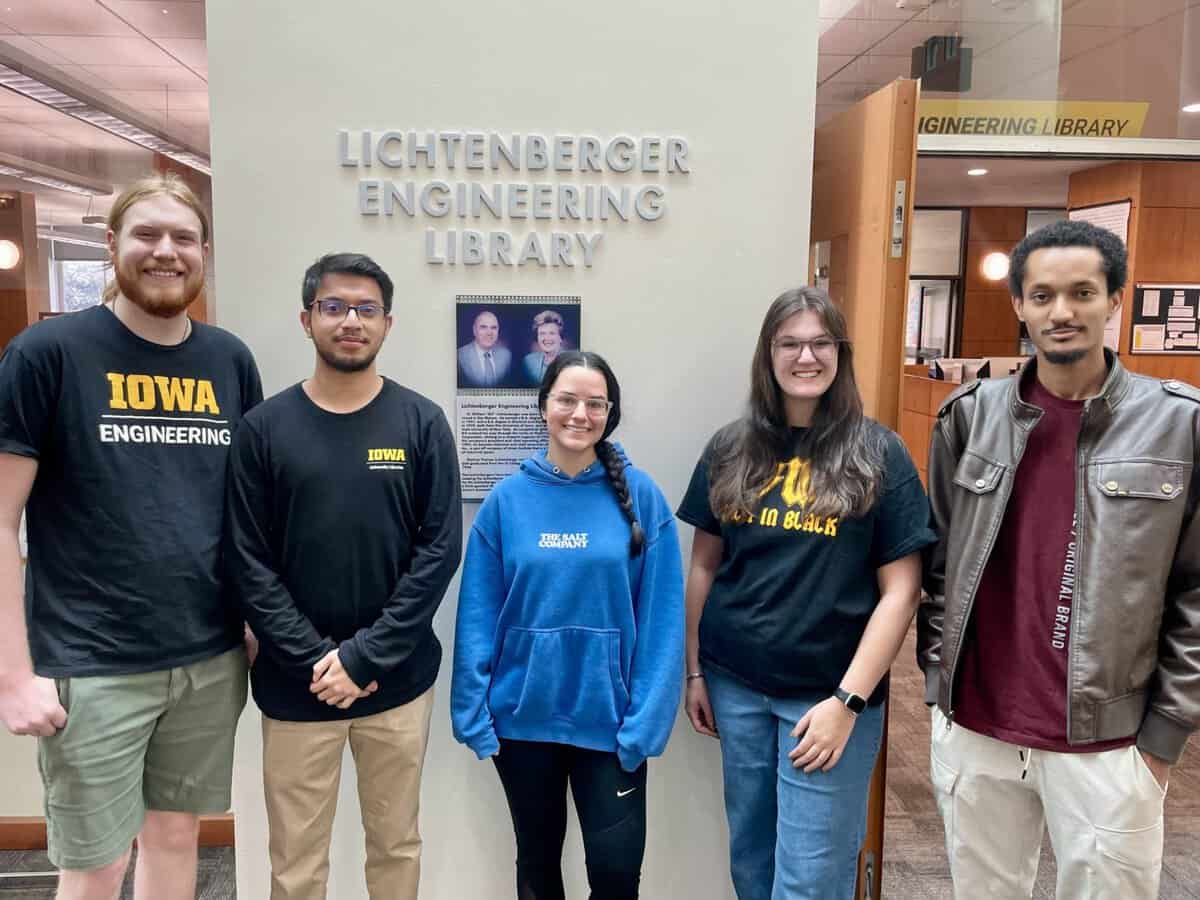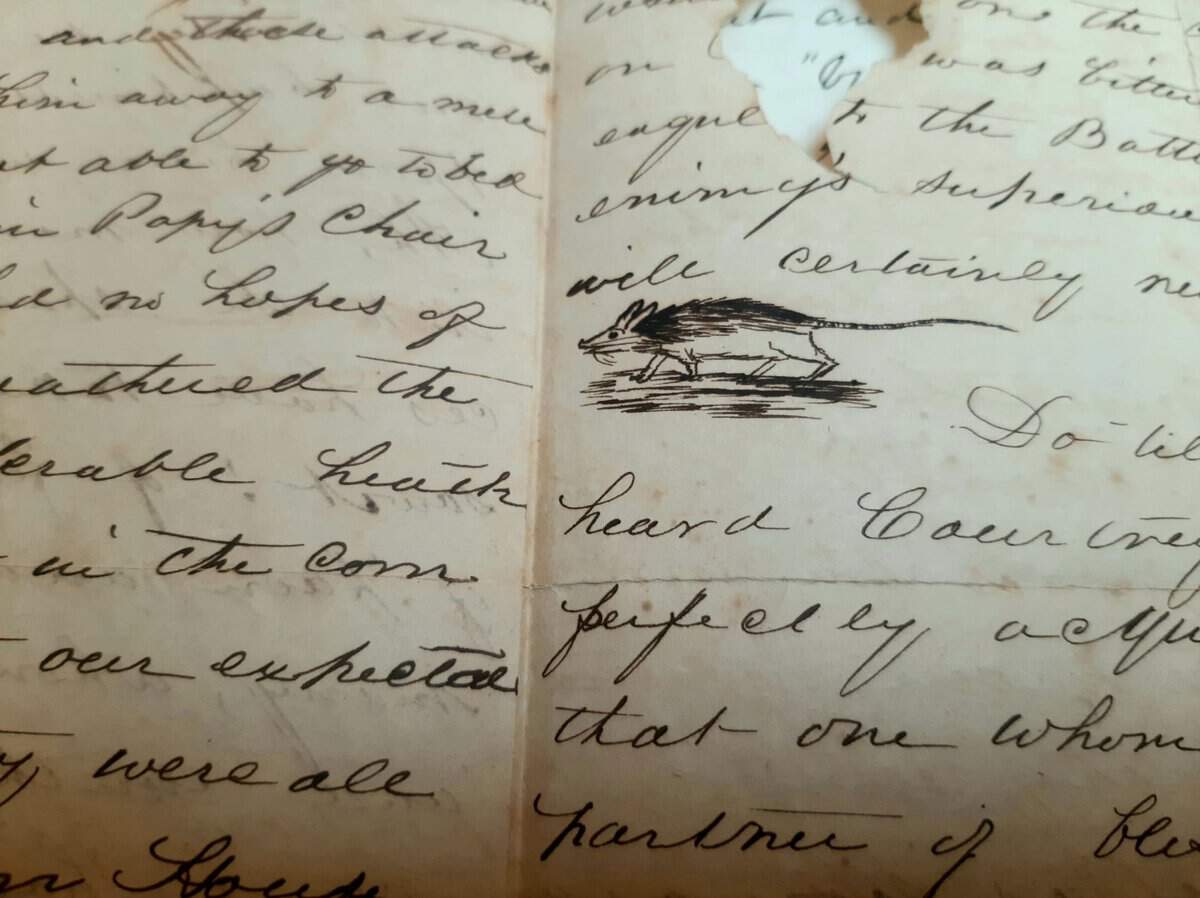There’s always something happening in the Lichtenberger Engineering Library! Check out this infographic to see how all the numbers added up. Want to see how we can help you? Stop by our reach out to us via email.
Author Archives: Amanda Gunnink
Celebrating our 2025 graduating student employees
This semester, we have five graduating student employees! It has been wonderful to see these students grow during their time with us. Adam Holmes Hometown: Iowa City, Iowa Degree: Bachelor of Science in mechanical engineering Next steps: I will be working as a product development engineer at IDT in Coralville, Iowa. What piece of adviceContinue reading “Celebrating our 2025 graduating student employees”
Happy Square Root Day!
Today is 5/5/25, making it Square Root Day because 5 x 5 = 25. The last Square Root Day was 4/4/16 and our next one will be 6/6/36. Here are some fun square root facts that you can share today: A whole number with a square root that is also a whole number is calledContinue reading “Happy Square Root Day! “
Engineering Open 2025 winners
This year’s Engineering Open was our biggest yet. There were 14 fairways, 83 people on participating build teams, and over 200 attendees! 2025 Winners Grand Prize: Chemical and Biochemical Engineering Faculty/Graduate Students 2nd Place: Chemical and Biochemical Engineering Undergraduates – American Institute of Chemical Engineers (AIChE) Student Group 3rd Place: Industrial and Systems Engineering UndergraduatesContinue reading “Engineering Open 2025 winners “
Spring semester in the Engineering Library
Get involved at the Engineering Library this semester! Whether you choose to participate in a workshop, create some art at a Maker Break, or play some golf at the Engineering Open, there’s something for everyone! Engineering Open Join us on Thursday, Feb. 27, 2025, 1–3 p.m., as each College of Engineering department competes to designContinue reading “Spring semester in the Engineering Library”
Finals week fun at the Engineering Library
Finals week is upon us and can be very intimidating. We are here for our students with extended hours, hot beverages, and fun surprises! We are open for late-night study sessions with space for individual and group study. Mon, Dec. 16–Thu, Dec. 19 | 8:30 a.m.–midnight Fri, Dec. 20 | 8:30 a.m.–6 p.m. Starting Monday,Continue reading “Finals week fun at the Engineering Library “
Register your team today for the Engineering Open
Registration is now open for design teams to enter the 2025 Engineering Open mini golf design challenge. Teams will compete to design the best mini golf fairway, focusing on fun theming and creative building. Visit the event homepage for full rules and judging criteria. The event will take place on Thursday, Feb. 27 from 1Continue reading “Register your team today for the Engineering Open “
2024 Capture Your Research winners announced
Capture Your Research is an annual image competition that celebrates research across campus at the University of Iowa. On Tuesday, Nov. 12, we held the Capture Your Research Reception and Awards Ceremony. The top 25 images were displayed and awards were presented. Check out the gallery below to view the winners of each of theContinue reading “2024 Capture Your Research winners announced “
Get ready for Homecoming 2024: Engineering Library resources for alumni and students
Homecoming week (Oct. 20–26, 2024) is a special time that brings together students, faculty, staff, future Hawkeyes, and alumni from all over the world. It’s a celebration that creates lasting memories for everyone involved. Whether you live on campus or are in town for the occasion, consider a visit to the Lichtenberger Engineering Library. DuringContinue reading “Get ready for Homecoming 2024: Engineering Library resources for alumni and students”
Join us for a glimpse at the career of a USPTO patent examiner
Have you ever wondered what happens to a patent after an inventor submits all that paperwork? Get a behind the scenes look with our upcoming presentation: The role of a USPTO patent examiner on Oct. 9, 2024, from 1:30 to 2:30 p.m. A patent examiner plays a crucial role in the intellectual property systemContinue reading “Join us for a glimpse at the career of a USPTO patent examiner “

